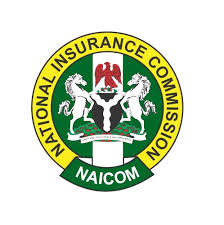Nothing has scared the National Insurance Commission like the very certain stop order anytime it sets out to raise equity capital in the insurance industry. Again and again the capital dice it throws at the market ends up in the court rooms, and most of the times the injunction to hands off has come as a consequence for that regulatory action that has no clear legal powers.
The last one about three years ago which operators were complying with in stages was progressing and industry watches were on the verge of accepting the new capital raise was set in order. That turned out to be a squandered nod. Opposition this time around came from a sect of concerned shareholders who challenged the capital raise the court granted their injunction and the capital boat sank but not before the operators had all disembarked into the life boats.
NAICOM quietly licked the wounds of the setback. About while after it was clear to all even to those who worked behind the scene aiding the shareholders that stopping the exercise was futile because the gains far outweigh whatever fears they had expressed. In the months that followed company after company sought and received approval from Board of Directors to pursue the best option that suits the company to endorse their equity capital further up.
The only option to defeat the injunction was by way of another bill processed by both Houses National Assembly. That is the route that the Commission had embarked and its winning up and until now.
At a press interaction last week in Lagos the Commissioner for Insurance, National Insurance Commission, Olusegun Ayo Omosehin, said what has been the technical knock out for the Commission has been its enabling law its did not give it sweeping powers to raise capital as when the conditions necessary allow as it relates to the Central Bank of Nigeria which seamlessly without legal contest from banks or their shareholders stood on its way to regulate banks including actions that relates to capital.
Omosehin said what has hamstrung the Commission has been the enabling law and NAICOM cannot exercise powers outside the powers that governs it the good intentions notwithstanding.
However, he says there will be light at the end of the tunnel. This will be experienced when the NAICOM Bill 2024 is finally accented by the President. Expectant Omosehin was squarely elated as he said this, “I am happy to announce that some bit of work has commenced. Currently the NAICOM bill has passed through the first reading in the Senate. Its a cheering news but there is still a lot of work to do.”
As the Commission eagerly awaits the sweet end of the bill, Omosehin expresses the tone of good things to come, “We are hoping to see a legislation that would be forward looking, more modern legislation that empowers the regulator to take action. That is the sort of thing we like to see and God helping us we will see that happen.”
While the crafting of the bill is ongoing, NAICOM has set as a priority the overhaul of the Commission to align with what is contained in the bill. “We have strengthened our own internal capacity to regulate. This will give us the level of effectiveness required to properly regulate the industry, strengthen our capacity and this has to do with the several parts of the Commission including the right legal and regulatory framework that would allow us to take certain steps without being challenged in law courts.”
Hoping to be in the same pedestal with CBN on powers to raise capital, take over ailing companies, the CFI recalled what the apex bank did a couple of months ago, “When the CBN took over a bank some couple of months back it was a seamless exercise. Its not that those banks don’t know where the court is don’t have lawyers that could file court papers. But because the legal framework for taken such action was clear, you need not challenge the position that is very clear. Those are the kind of powers we want in NAICOM as the regulator to have. We are positive that we will get there.”









































